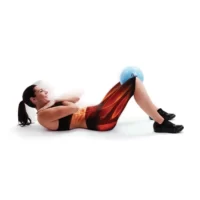Vertigo Dizziness Management
Article by J. Miller, S.Armfield
What is Vertigo Dizziness?
Vertigo and dizziness can be incredibly unsettling experiences. They often cause sensations of spinning, imbalance, or feeling faint. These symptoms may be linked to benign causes or more serious conditions affecting your inner ear, brain, or cardiovascular system. The good news is that physiotherapy can help you regain control of your balance.
Read more: Vestibular Physiotherapy | Balance Training | Falls Prevention

Why Do You Experience Vertigo or Dizziness?
Many factors can cause vertigo or dizziness, ranging from simple inner ear disturbances to complex neurological conditions. The most common causes include benign paroxysmal positional vertigo (BPPV), vestibular neuritis, and Ménière’s disease. Other triggers might be migraines, low blood pressure, or anxiety.
Read more: Causes of Vertigo | Dizziness Management
How Can Physiotherapists Help Diagnose the Cause?
Accurately diagnosing the cause of vertigo and dizziness is essential for effective treatment. Your physiotherapist will conduct a thorough assessment of your symptoms, including any specific triggers like head movements, to identify the root cause. This assessment may involve balance tests and a review of your medical history.
Read more: Vestibular Testing | Dizziness Causes
What Symptoms Should You Look Out For?
Dizziness or vertigo may be accompanied by other symptoms, such as:
- Double vision
- Difficulty speaking
- Weakness in the legs
- Nausea
- Eye flickering or jumpiness
- Facial numbness
If these symptoms occur, it’s crucial to seek immediate medical attention, as they may indicate a more severe neurological or cardiovascular issue.
How Can You Improve Your Balance?
Improving balance is achievable through physiotherapy. Balance retraining involves specific exercises designed to enhance your body’s ability to maintain stability. Simple activities such as standing on one leg with your eyes closed can be a great start. Your physiotherapist can recommend personalised exercises to suit your needs.
Read more: Balance Exercises | Vestibular Rehabilitation
Falls Prevention: Why Is It Important?
Preventing falls is one of the most critical outcomes of balance improvement. With physiotherapy guidance, you can perform exercises that strengthen your muscles and improve balance reactions, helping you stay upright in tricky situations. These exercises not only reduce fall risks but also boost overall mobility.
Read more: Fall Prevention Exercises | Strength Training
New Research
Dizziness is a frequent issue for older adults, significantly increasing the risk of falls and economic costs. About 35.4% of adults experience vestibular hypofunction, primarily presenting with dizziness and postural imbalance. Vestibular rehabilitation effectively addresses many peripheral disorders and shows promise for central issues, helping to alleviate symptoms and reduce fall risks (Edwards & Franklin, 2023). This article reviews vestibular rehabilitation and emphasises the importance of an interprofessional team in assessing, treating, and managing patients with vestibular hypofunction.
Read more: Vestibular Research | Balance Studies

What to Do?
If you’re feeling dizzy or off-balance, a physiotherapist can help assess your condition and design a personalised treatment plan. Don’t hesitate to contact your local physiotherapy clinic for professional advice. A physiotherapist will assist you in safely managing your symptoms and improving your quality of life.
Read more: Balance Training
Rochedale - Call 38410277
Book Online: RochedaleSalisbury - Call 32751044
Book Online: SalisburySandgate - Call 32691122
Book Online: SandgateVertigo Dizzness FAQs
- Why am I dizzy all of a sudden? Dizziness can arise from several causes, such as dehydration, low blood sugar, or inner ear issues. A physiotherapist can help identify the source. Read more: Vestibular Physiotherapy
- How long does vertigo last? Vertigo episodes can last from seconds to hours. If symptoms persist, consulting a physiotherapist is crucial for proper diagnosis. Read more: Vertigo Causes
- Who can treat vertigo? Vestibular physiotherapists specialise in treating balance disorders like vertigo. Read more: Vestibular Rehabilitation
- Where can I get treatment for dizziness? Physiotherapy clinics offer treatment for dizziness, often focusing on balance exercises and vestibular rehabilitation. Read more: Dizziness Treatment Options
- When should I worry about dizziness? If dizziness is accompanied by severe symptoms like fainting or weakness, seek medical attention immediately.
- What exercises help with balance? Simple balance exercises such as standing on one leg can improve stability over time. A physiotherapist will provide a customised plan. Read more: Balance Exercises
- Why do I feel dizzy when standing up? Postural hypotension, or a sudden drop in blood pressure when standing, may be the cause. Consult a physiotherapist for a comprehensive assessment.
- How does physiotherapy help with dizziness? Physiotherapy addresses dizziness by focusing on vestibular exercises that retrain the balance system. Read more: Vestibular Rehabilitation
- What causes dizziness when lying down? Benign paroxysmal positional vertigo (BPPV) is a common cause of dizziness when changing positions. Treatment includes specific head movements. Read more: BPPV Causes
- Can stress cause vertigo? Yes, stress can trigger dizziness due to increased anxiety affecting the nervous system.
Related Articles
- Vestibular Physiotherapy
Discover how physiotherapy can treat vestibular conditions and help manage vertigo. - Balance Training
Learn effective balance exercises that can improve stability and prevent falls. - Falls Prevention
Explore fall prevention strategies and exercises that can enhance your safety and mobility. - BPPV Treatment
Understand the symptoms and treatment options for benign paroxysmal positional vertigo. - Vestibular Rehabilitation Exercises
Find out how targeted exercises can improve balance and reduce dizziness. - Neck-Related Dizziness
Read about the connection between neck issues and dizziness, and discover treatment options. - Migraine and Dizziness
Understand the link between migraines and dizziness, and explore physiotherapy treatment options. - Strength Training
Discover the role of strength training in improving balance and preventing falls. - Nerve Pain and Dizziness
Learn how nerve pain can contribute to dizziness and how physiotherapy can help. - The Role of Vestibular Rehabilitation in Treating Vertigo
Discuss the latest advancements in vestibular rehabilitation and its impact on vertigo management. - Balance Exercises for Fall Prevention
Find out how balance exercises can prevent falls and improve quality of life for patients with dizziness. - The Effectiveness of Physiotherapy in Treating Dizziness
Explore peer-reviewed research on the benefits of physiotherapy for managing dizziness and vertigo.
Social Media Follow Us
Stay connected with us on social media for regular tips on managing vertigo and improving your balance. Follow us for free advice and exercises you can try at home to stay steady on your feet.




















